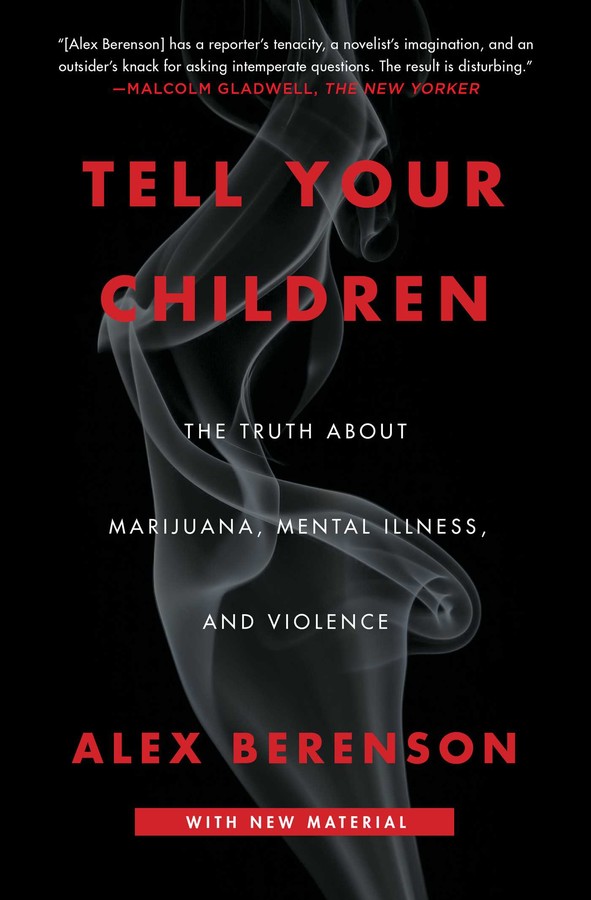Weed bro dude, it’s like, natural, mannnnn.
One day in fall 2018, Bo Gribbon began to vomit and couldn’t stop. He threw up multiple times an hour from morning to night before his mother drove him to the hospital near their home here.
“It felt like Edwards Scissorhands was trying to grab my intestines and pull them out,” said Gribbon, then 17.
Over the next nine months, Gribbon went to the emergency room 11 times for the same problem: severe vomiting and screaming at the same time that lasted for hours. When a physician’s assistant told him the likely cause, Gribbon didn’t believe it at first. He had never heard of marijuana producing a side effect like that.
“The only thing that convinced me was that it stopped when I stopped smoking,” said Gribbon, now 20.
Colorado and Washington became the first states to legalize recreational marijuana in 2012. Several years later, doctors in Colorado and other states are expressing alarm over the increasing potency of cannabis and the health risks it may pose for young users — from psychiatric issues, including violent psychotic episodes, to the mysterious condition that plagued Gribbon.
The condition — officially called “cannabinoid hyperemesis syndrome” but now known to health care workers as “scromiting,” a mashup of “screaming” and “vomiting” — has popped up with increasing frequency at hospitals in Colorado, doctors say.
The ER at Parkview Medical Center in Pueblo saw only five scromiting cases in 2009. By 2018, the number had risen to more than 120, according to data compiled by Dr. Brad Roberts, an emergency room physician at the hospital.
Reports of the syndrome doubled in two different ERs in the state shortly after legalization, according to one study.
Roberts said the presence of these patients strains hospital resources. When faced with people suffering from bouts of nonstop vomiting, doctors often order up an array of diagnostic tests to rule out other underlying causes.
“We use up a lot of medical resources to see if there is anything more seriously wrong with them,” Roberts said.
A 2018 national research review called the syndrome “an increasingly prevalent and complicated problem for health care providers and patients.”
Cannabis has been consumed by humans for thousands of years, but relatively little is known about cannabinoid hyperemesis syndrome.
The condition was first reported in scientific literature in 2004. The available research since then indicates that it stems from chronic use of especially powerful marijuana.
A 2017 review of studies found that 97 percent of people who developed the condition reported using marijuana at least once a week. About 75 percent said they consumed cannabis regularly for over a year.
…
Scromiting cases have increased as pot has become far more powerful, according to doctors. Experts say the marijuana consumed 20 years ago had levels of THC, the main psychoactive ingredient, of 2 percent to 3 percent, but cannabis products now sold in markets like Colorado can have THC levels as high as 90 percent.
Dr. Timothy Meyers, the chair of the emergency department at Boulder Community Health, said when he first arrived at the hospital 18 years ago, it was a condition he never saw.
“Now I see it practically every day,” he said.
…
Four Colorado doctors interviewed by NBC News said they’ve also seen an increase in the number of patients with psychiatric issues after consuming powerful marijuana. A 2019 study found that consuming cannabis with THC levels exceeding 10 percent increased the odds of a psychotic episode.
“Almost every day I see a patient in the ER who is having a psychotic break after taking high-potency THC,” Roberts said.
Dr. Karen Randall, who works in the Parkview Medical Center emergency room with Roberts, said she spent 19 years working in a downtown Detroit emergency room, but that didn’t prepare her for what she characterized as the high volume of “acutely violent psychotic patients” in Colorado.
“I never saw anything like this,” Randall said.
Marijuana has long been considered a nonaddictive drug that causes few, if any, serious side effects. It’s still not clear if it causes more serious mental health problems, but a growing body of research suggests it can have damaging effects on adolescent brains.
An increasing share of Colorado’s $2 billion cannabis market is made up of concentrates or other products with high levels of THC, according to Tim Ruybal Jr., who founded Dyspense, a company that tracks inventory for the industry. Ruybal said concentrates made up 43 percent of the market share in 2020, up from 32 percent in 2019.
“Evidence for how cannabis, especially in higher concentrations, impacts mental health is growing and stronger, especially on how it relates to psychosis and schizophrenia-like symptoms,” said Dr. G. Sam Wang, an emergency room doctor and toxicologist at Children’s Hospital Colorado in Denver.
“These impacts are seen more with higher-concentrated products and with more frequent use,” Wang said.
Before he began his career as the only journalist covering the coronavirus with any hint of honesty, Alex Berenson did research into links between marijuana use and psychosis, and found that it is very strong, based on all available data.
He wrote a book called “Tell Your Children.”
He also appeared on Joe Rogan for a debate with the Doctor of Weed. Apparently, Joe’s $100 million from Spotify included a genocide of all his old shows on YouTube (long story), but this 30-minute clip will probably do you. Most of the show was just the Doctor of Weed getting confused and agitated and Berenson having to repeat himself. The Doctor of Weed was also repeatedly trying to construct a strawman by saying “weed is dangerous for teenagers” is the same thing as trying to ban CBD oil from being used as medicine.
This will have to do you, because I’m not going on Spotify, ever, no matter what happens to me in my life – and I don’t suspect you are either.
The main point that matters is that since weed was legalized for medical purposes, they started using all of these scientific methods to enhance its potency. On the part of the farmers, that doesn’t imply maliciousness, but it changed weed from something that maybe wasn’t big of a deal into a super powerful drug that causes hallucinations and can induce schizophrenia.
I remember in the early 2000s going out to California and first laughing at the ridiculous prices they were paying for weed and then vomiting because it was so strong. That was when California had just started with the medical stuff. At this point, smoking weed is probably like dropping acid.



